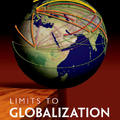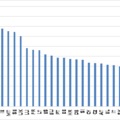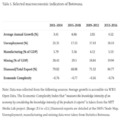In the past few months, Huawei has become a target of harsh criticism in many Western countries. From the United States and Canada all the way to Australia and New Zealand, policymakers fear that the Chinese telecommunications giant will abuse its dominant market position as the biggest provider of 5G network infrastructure, potentially spying on Western consumers and amassing large amounts of data on behalf of the Beijing government. Such concerns have led to the introduction of target-specific bans, such as in New Zealand, where Huawei was recently blocked from importing mobile network equipment into the country. Washington and Tokyo have likewise resorted to excluding Huawei and ZTE companies from government contracts, claiming that the use of Chinese infrastructure poses significant threats to national security. The idea that Chinese telecommunications companies function like Trojan horses was popularized, too, during US Secretary of State Mike Pompeo’s recent tour in the Central and Eastern European region. The question is, how has the Hungarian government, known for its open sympathy towards Chinese investors, managed its relations with Huawei in the context of growing Sinophobia around the globe.
Countries across Europe appear to be somewhat divided in terms of how they handle the Huawei-dilemma. While more developed Western countries like Germany and the UK are aware of the risks entailed in doing business with the Chinese company, they nevertheless prefer to manage them through tightening relevant telecommunications regulations instead of imposing a discriminatory ban. In Central and Eastern Europe, Poland and the Czech Republic have taken a more antagonistic approach, with the Polish authorities arresting a Huawei sales manager and the Czech national cyber security agency issuing a warning for Czech companies not to use ZTE and Huawei infrastructure. The rest of the V4 countries, however, pursue a much less confrontational direction. This is illustrated most clearly by the Slovak Prime Minister’s recent declaration that Slovakia does not consider Huawei to be a security threat in the absence of compelling evidence.
Much like Slovakia, Hungary has openly embraced Huawei and continues to support its presence in the country. The company opened for business in 2005, and it has developed remarkably ever since. In 2013, the Hungarian government signed a strategic partnership agreement with Huawei, and Prime Minister Viktor Orbán personally inaugurated Huawei’s upgraded logistics center in Biatorbágy. The company also participated in the modernization of the country’s national emergency call system, 112. In 2015, Minister of Economy Mihály Varga was a guest of honor at Huawei’s 10th anniversary celebration, and he also visited the company’s headquarters in Shenzhen, China in 2017. In November 2018, at a time when Huawei had already been accused of potential wrongdoing in other parts of the world, the Hungarian government stood by its Chinese partner and struck a cooperation agreement which invited Huawei to help improve the country’s broadband services. In the words of László Palkovics, Minister of Innovation and Technology, the Hungarian government expects “Huawei to begin building a home 5G network soon.” In a nutshell, the Hungarian government has so far worked consistently to create a profitable and stable environment for Huawei to grow and expand in the country.
Today, the Orbán-government remains resilient in its pro-Chinese position, defying Washington’s calls to constrain Huawei’s footprint in the country for reasons of national security. On 25 January 2019, Gergely Gulyás, Minister of the Prime Minister’s Office, made this point clear at a press conference: “The Hungarian government sees no security threat in Huawei.” Asked whether the government may consider restricting the Chinese company’s participation in certain projects, following the arrest of a Huawei official in Poland, Gulyás added that “Huawei will not be excluded from any domestic development projects.” On 11 February 2019, Minister of Foreign Affairs Péter Szijjártó reiterated this same position at a joint press conference with Mike Pompeo. Rather than repeating Gulyás’s unambiguous message, however, Szijjártó essentially deflected attention away from the issue, playing down Huawei’s market position in Hungary and emphasizing that its biggest procurers are actually British and German companies. Overall, Szijjártó considers the attacks against Huawei to be driven by Western hypocrisy, and sees no reason for a reevaluation of the strategic partnership agreement with the Chinese company. Needless to say, the message was clear and did not go unnoticed by Huawei. As Yanmin Wang, President CEE & Nordic Region for Huawei’s Consumer Business Group, stressed in an interview, the success of the Chinese company shows that “we are good friends of Hungary, and we want to be even better.”
Indeed, Huawei has registered a remarkable development course in the past 13 years, but this only partially explains why the Hungarian government adamantly defends the Chinese company. After all, Huawei is also something of a poster child for the Orbán-government’s Eastern Opening, as it illustrates that a reorientation in foreign policy has occurred to the benefit of the country’s economic needs. When Huawei and Wanhua BorsodChem concluded a strategic cooperation agreement in 2016, Szijjártó highlighted the agreement’s political significance and attributed its success to the Eastern Opening policy. This means that a falling out with Huawei would be not only economically unreasonable because it would damage relations with China and other Chinese companies. It would also inevitably tarnish the Eastern Opening agenda and spell doubt over the Hungarian government’s overall competence in foreign economic policy. If these concerns were not enough, one should keep in mind that the Orbán-government generally refuses to act upon requests from other Western countries, dismissing them as foreign attempts to undermine Hungarian sovereignty. US pressure to exclude Huawei from government contracts is likely seen in Budapest as one such attempt.
In conclusion, the Orbán-government has generally paid special attention to fostering friendly relations with Chinese companies after 2010, and Huawei is a prime example of this trend. The telecommunications giant has been awarded key government contracts only recently, which demonstrates that Budapest is committed to its strategic partnership with Huawei even if it generates some friction with allies like the United States or Poland. In the Central and Eastern European region, what this implies is that the pro-China political consensus appears to be slowly but surely disintegrating, as divergent reactions to the Huawei-dilemma cast a cloud over foreign policy cooperation in the V4 and the 16+1 framework. Another implication has to do with the brewing US-China antagonism, and the necessity of choosing sides between Washington and Beijing according to a zero-sum logic. Smaller European countries, such as Hungary, need to calculate carefully the inevitable disadvantages of ignoring US warnings and opting for better relations with China. So far, however, the Orbán-government’s position has been clear and unchanging: Hungary remains a safe haven for Huawei.
Tamás Peragovics
This text was written in the framework of the project "Comparative analysis of the approach to China: V4+ and One Belt One Road" implemented by IWE (Hungary) in cooperation with PSSI (Czech Republic), IAS (Slovakia), BFPE (Serbia), CIR (Poland), and supported by the International Visegrad Fund (IVF).








